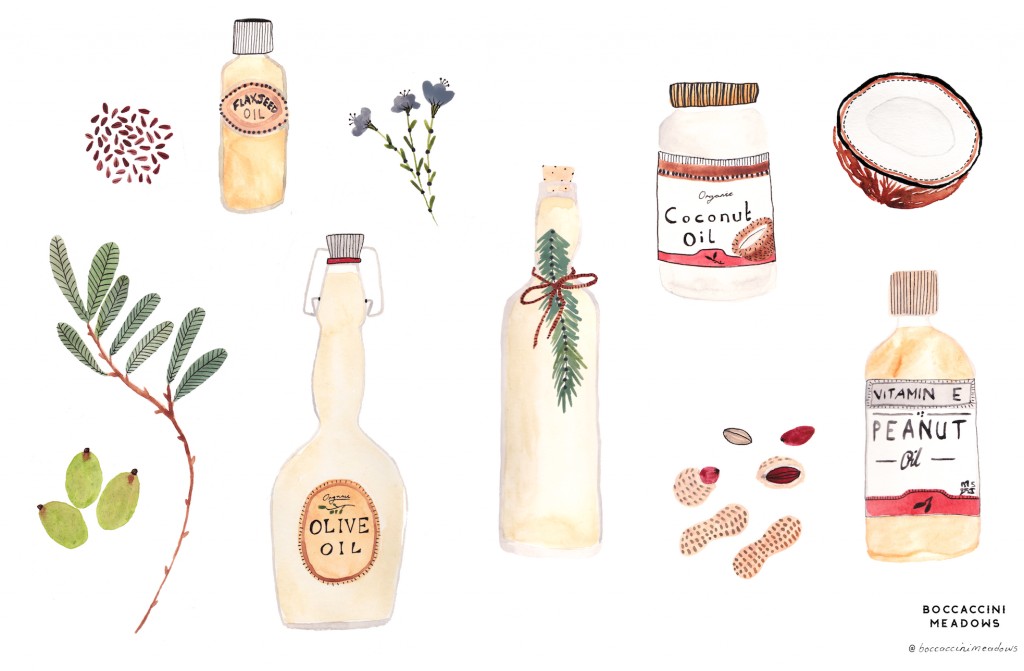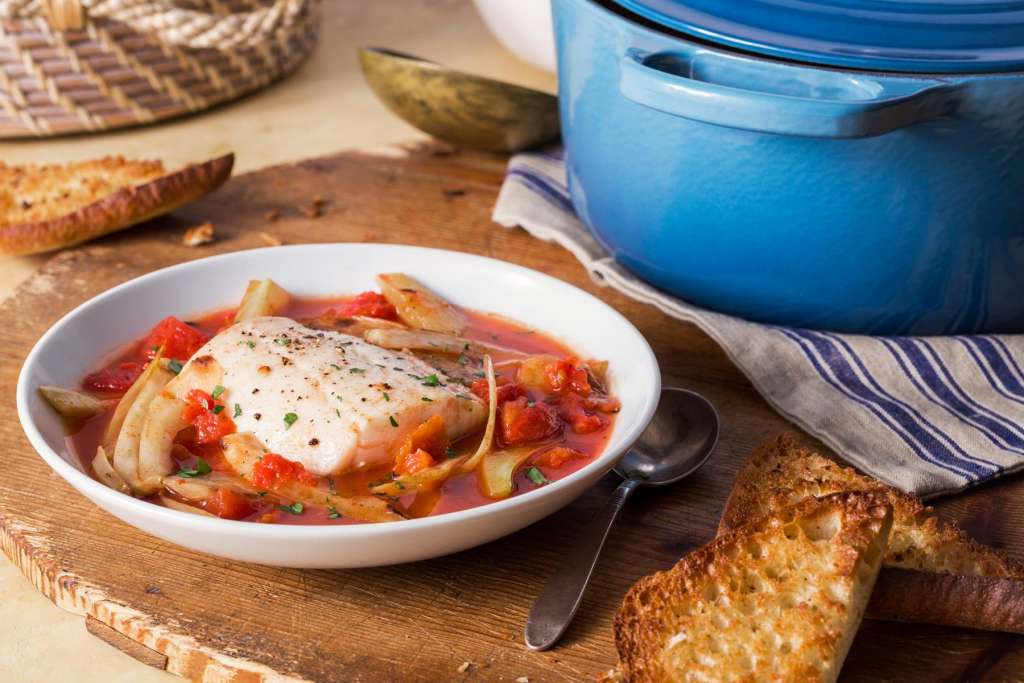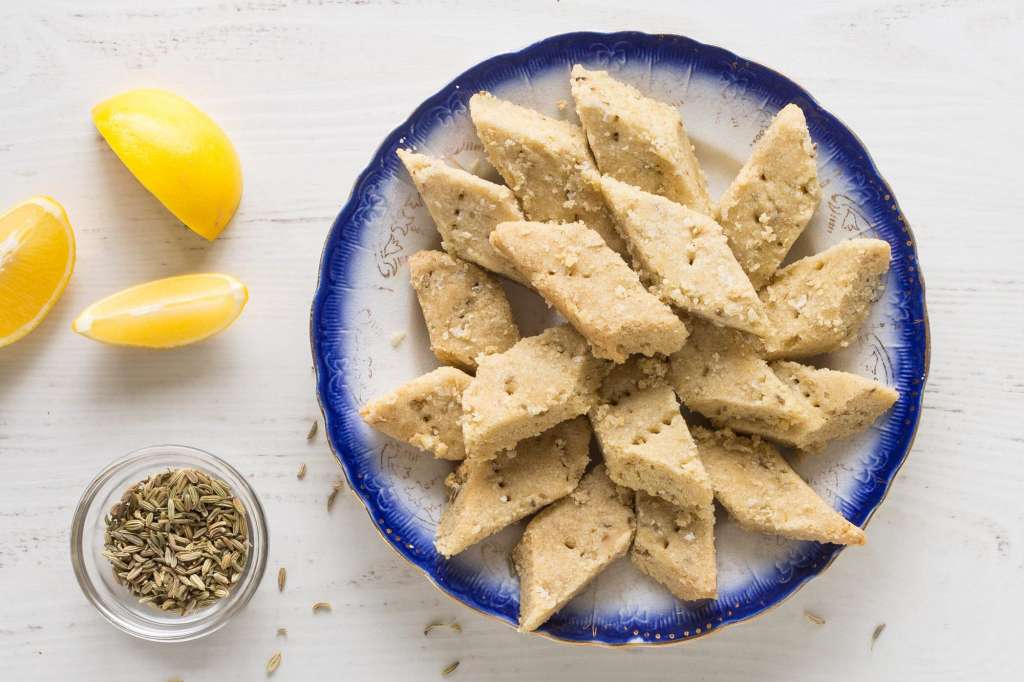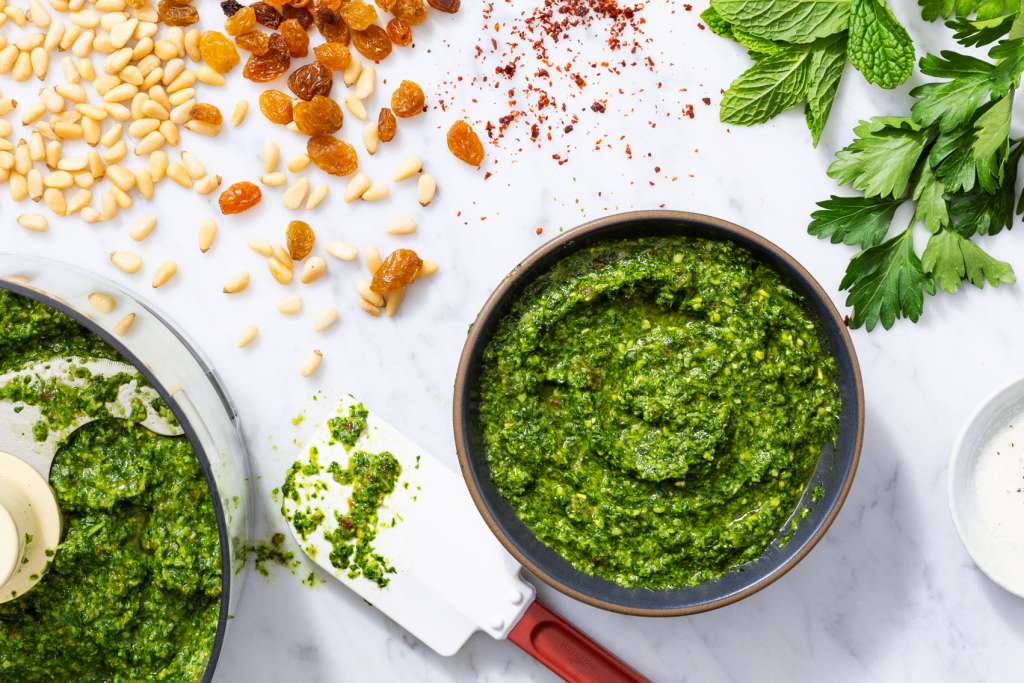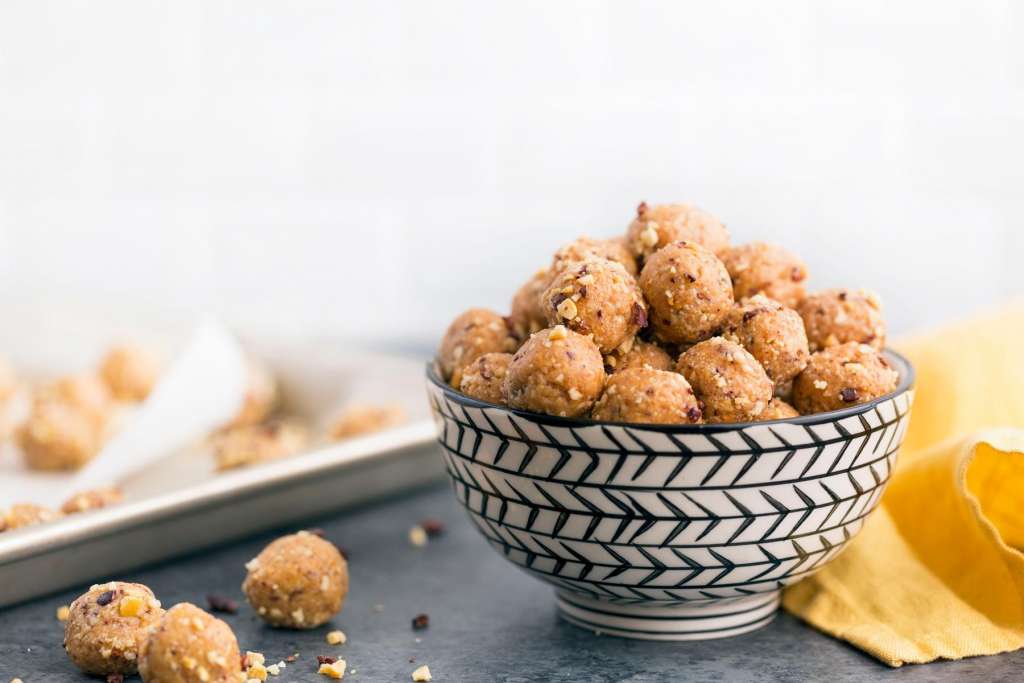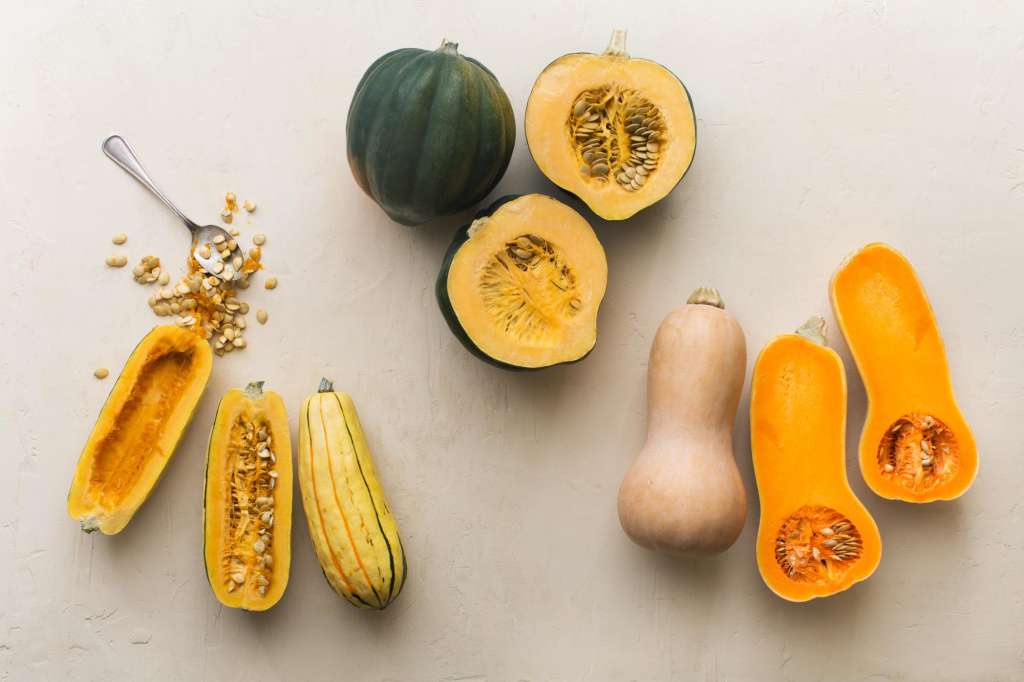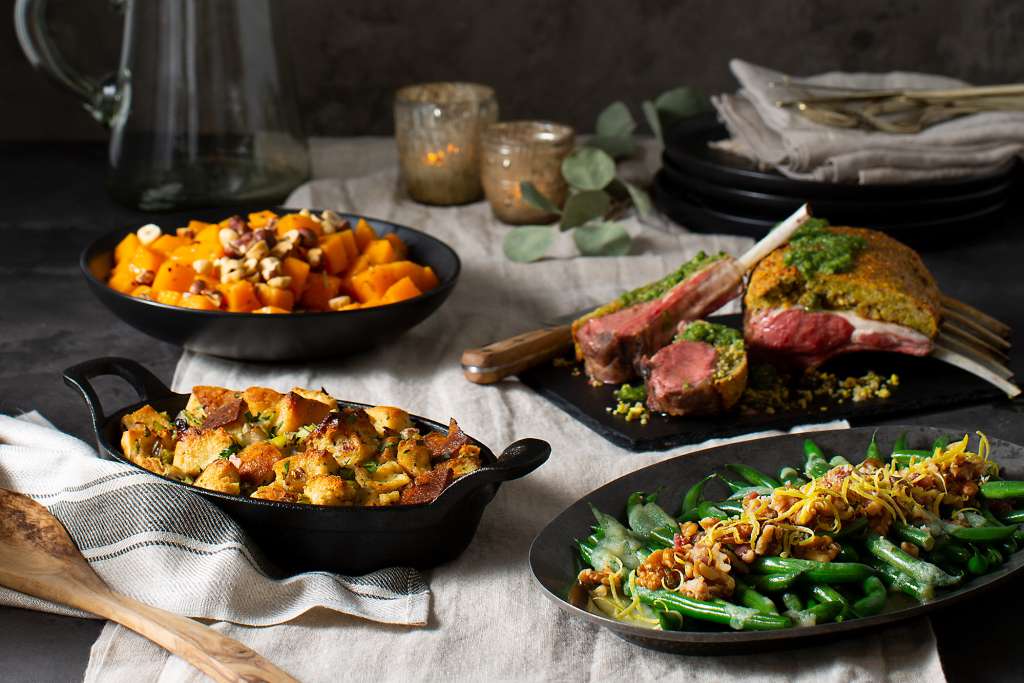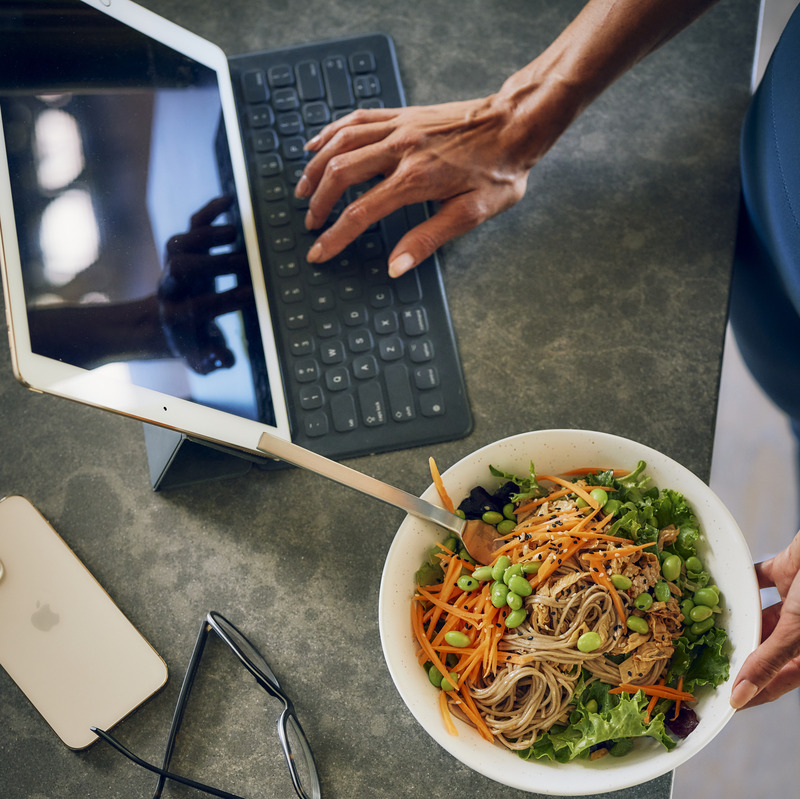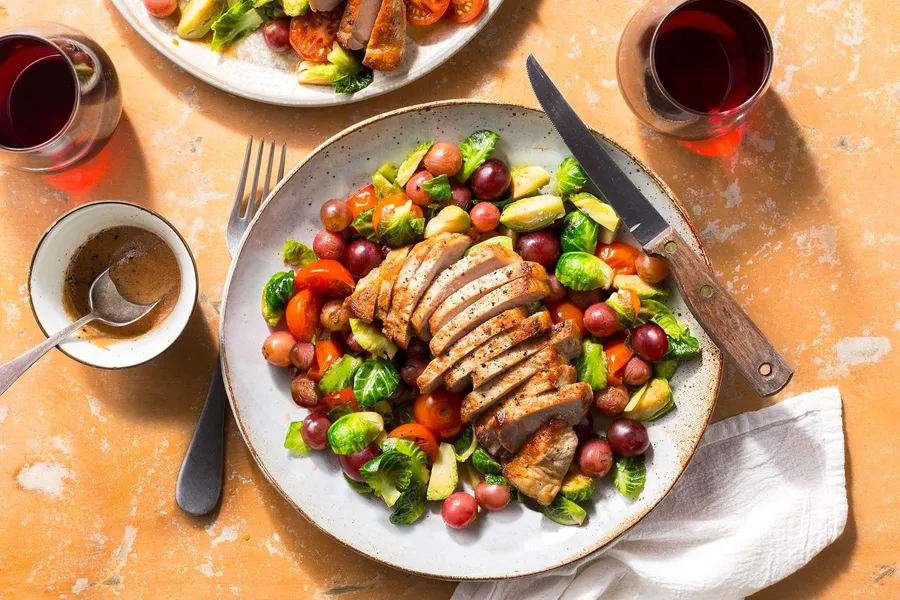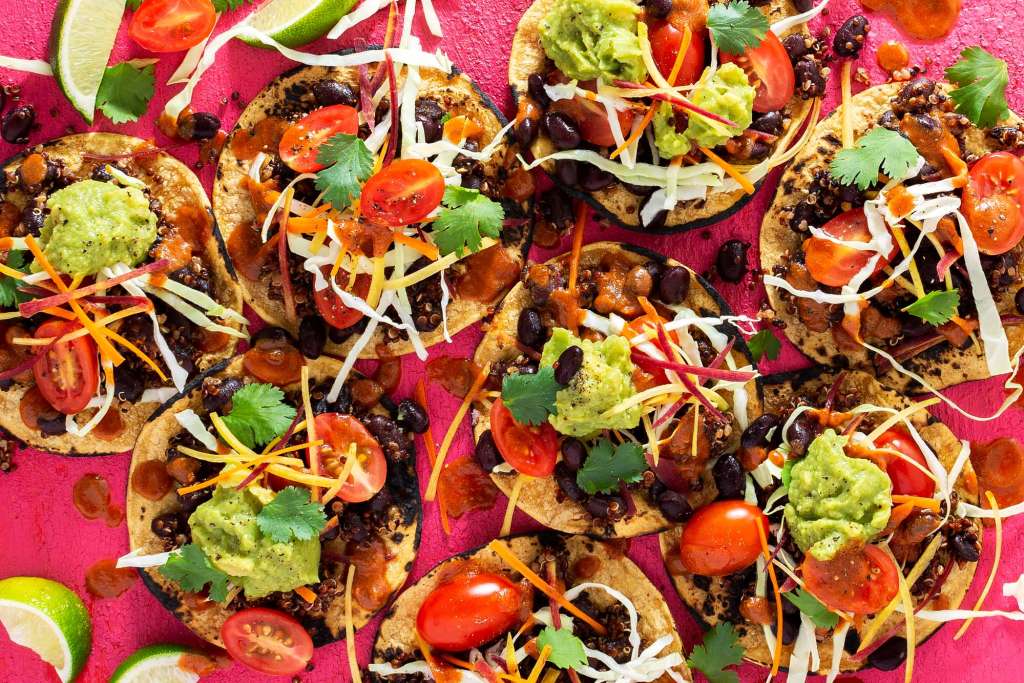Guide to the Vegan Pantry
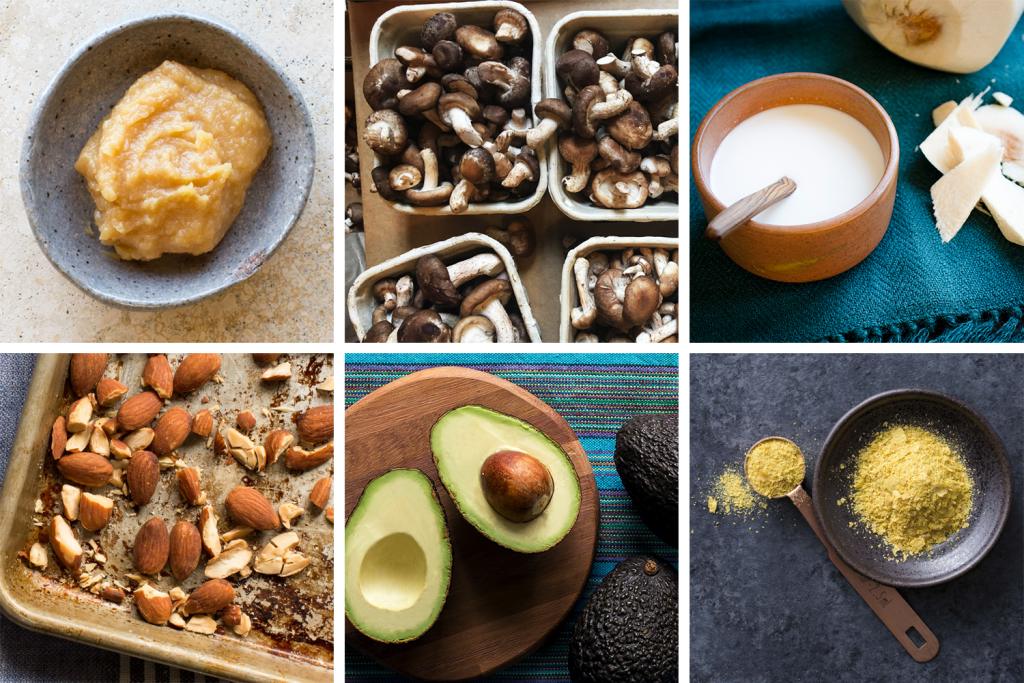
The Sun Basket test kitchen works hard to make sure all of our vegan meals are big in flavor and provide all the nutrients needed to stay healthy. While there are many benefits to a plant-based diet, it’s important for vegans to find sources of protein, fat, and iron—three nutrients that can be difficult to get enough of if you don’t eat animal products. We’ve taken on the challenge of working with a new range of ingredients and even coming up with some exciting vegan sauces and seasonings of our own.
Here’s a look inside Sun Basket’s vegan larder:
Fats
One of the big upsides of a plant-based diet is that it’s naturally low in saturated fats. But fat is an important part of a healthy diet, and it goes a long way in making other ingredients taste their best. Everyone, whether vegan or not, should include plenty of good-for-you fats in their meals.
Avocados—A delicious way to load up on cholesterol-fighting monounsaturated fats, avocado’s buttery texture is a boon to vegan desserts, like our Chocolate Avocado Pudding.
Cashew butter—Cashews are a protein-rich good fat, they deliver creamy richness to many of our vegan recipes. We use cashew butter to make cashew “cream,” a luxe-tasting cheese sauce for our pastas.
Coconut oil —Yes, it’s a source of saturated fat and not without controversy, but most dietitians agree that small amounts of coconut oil—particularly virgin coconut oil, which has not been chemically treated—can be part of a healthy diet.
Olive oil—A good source of monounsaturated fat and antioxidants, olive oil can reduce the risk of heart disease and other chronic health issues.
Nut and plant milk
Dairy is the kryptonite that has felled many a would-be vegan. Happily, there are now plenty of vegan “milks” made from things like almonds, coconuts, cashews, and even oats that offer the richness of dairy without the cow.
Proteins
Unlike traditional meals where animal proteins often stand alone in the center of the plate, a plant-based meal is all about the sum of its parts. While on their own, individual ingredients may be low in protein, a plate filled with vegetables, legumes, whole grains, nuts, and seeds often adds up to enough protein for you to thrive. Fortunately, there are lots of plant-based proteins that fit easily into a vegan diet.
Chickpea flour—A great source of protein, iron, and fiber, ground chickpeas make a sweet, creamy flour that we use to replace the eggs in our vegan Spanish tortilla.
Tempeh—It’s not going to win any beauty contests, but this vegan protein made from cooked and slightly fermented soybeans is a good source of calcium, too. Unlike tofu, it has a distinct flavor and firm, dense texture.
Tofu—The best-known vegan protein is made from soy milk. It has a very mild flavor, which makes it incredibly versatile.
Umami
That hard-to-describe fifth taste is found in a lot of foods, like cheese and meat, that are off-limits to vegans. But there are still plenty of vegan ingredients the deliver a umami-rich sense of satisfaction and savoriness to a meal.
Eggplant—Often called out for its meaty texture, eggplant offers more heft than most vegetables. Its subtle flavor makes it a versatile actor that can take on a broad range of flavors.
Miso—This fermented bean paste is a rich source of umami and good-for-your-gut probiotics.
Mushrooms—With their earthy flavor and chewy texture, mushrooms are another vegan ingredient that plays well with others. They are also one of the rare food sources of vitamin D. Porcini powder is our vegan superpower.
Nutritional yeast—This beloved staple of the 1970s hippie kitchen is making a comeback. Its tangy, cheesy flavor makes it a great addition to risottos and pastas. Our test kitchen combines it with almond meal to make our vegan “Parmesan.”
Sun Basket Seasonings and Sauces
Our test kitchen has been on fire developing a new range of vegan seasonings and sauces. Here are just a few.
Vegan “Parmesan”—Don’t skip the cheese. Our blend of almond meal and nutritional yeast is a delicious stand-in for your favorite pasta topping.
Vegan “oyster sauce”—It’s difficult to make authentic-tasting Asian food without the traditional sauces, but our chefs relish the challenge. This shellfish-free “oyster sauce,” made with tamari, coconut aminos, canola oil, fresh ginger, and porcini powder, is one of their triumphs.
Vegan “cheese” sauce—Almond milk, cashew butter, granulated garlic, nutritional yeast, and onion powder make a dairy-free sauce for our spaghetti “alfredo.”
Vegan Sloppy Joe seasoning—Lentils make a credible stand-in for meat when mixed with our blend of tomato paste, vegan Worcestershire sauce, granulated garlic, chili powder, cumin, and coriander.
Tahini goddess dressing—Our dairy-free riff on green goddess gets its creaminess from tahini rather than yogurt.
